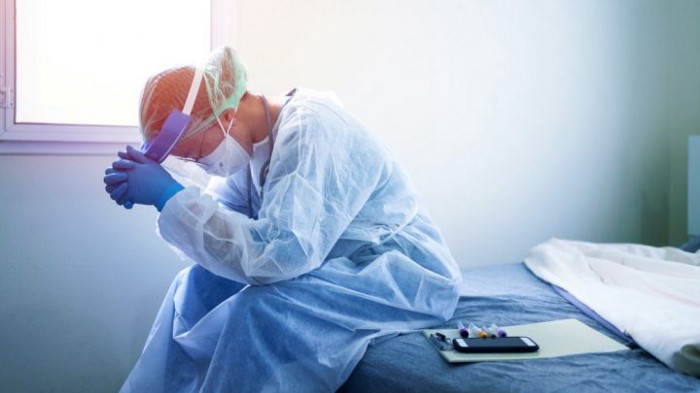Mental Health of Healthcare Workers during the COVID-19 Pandemic: Are we mentally okay?

The COVID-19 pandemic has been started for more than one year. This prolonged pandemic situation and new variants of the new coronavirus that might not be detected through PCR testing, spread faster and more dangerous, and the possibility that new vaccines are needed, creates new anxiety and speculations that impacts on healthcare workers (HCWs) mental health too.
With long hours shifts, overwhelming pressure, underpaid, no or late incentives, trust issues and rumors circulating about HCWs, risk of developing physical and emotional distress, especially among medical HCWs (doctor, nurse) at hospital settings is higher than the non medical HCWs. A systematic review on PubMed Journal stated that 63% of HCWs reported a mental disturbance regarding anxiety, stress, and depression. Also, medical staff at the hospital experienced moderate and severe fear which was significantly higher than the administrative staff group. Working in high incidence of infection also impacts on psychological problem and stress level among HCWs.
How to manage our mental health as healthcare workers?
As HCWs, we are used to face a lot of pressure and high workloads, also
low quality of sleep due to multiple shifts per week. We often work at
more than one hospital due to shortage of medical staffs.
However, this COVID-19 pandemic is a long run. We should maintain our pace and keep our health to give a better service to the community.
A rapid review from BMJ stated that there are several factors to protect HCWs mental health. First, is adequate support from work environment. Also, equip HCWs with adequate trainings and PPE. Support from the family, their loved ones also important, and safety of the family members decreases HCWs anxiety and fear.
Another intervention that can be done is providing professional psychological support for those who suffers emotionally and psychologically. Reducing working hours, providing access to healthy meals and hydration, giving incentives to those who work in high risk of infection area, besides equipping them with PPE, are equally important to protect HCWs mental health. The last is start using telemedicine, online video conference such as zoom, to reduce the risk of infections among HCWs and reduce HCWs workload. Therefore, they can optimize their time to take care of patients and able to maintain their health as well.
Let’s take care of ourselves before take care of others. Mental health is equally important as physical health. Stay safe.